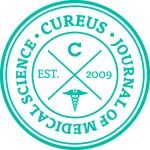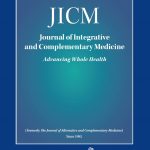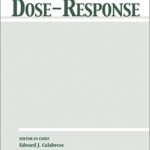John Weeks
Musings on Patient Care and Polarization AfterJAMA Oncology’sErroneous Report That Complementary Medicine Kills
Explore, 2019, 15 (2), 82-87

Excerpt
If I position myself as a consumer of oncology services – I am one – I would find myself extremely confused by recent media on the use of cancer-related treatment that is a complement to typical treatment but not typically part of mainstream oncology. After a research team led by a radiation oncologist from Yale reported in July 2018 in the pages of the esteemed JAMA Oncology that such a choice was associated with greater risk of death,1 The New York Times trumpeted their findings in a headline: “People who used herbs, acupuncture and other complementary treatments tended to die earlier than those who didn’t.”2 The biggest problem with this conclusion is not that the esteemed journal and Yale researchers got it fundamentally wrong – basically every which way, as I will show below. The more significant damage is the downstream confusion sown by the media in the public and in practitioner communities. Many from both stakeholder groups – patient and practitioner – are trying earnestly to understand if there are any methods to avoid or ameliorate the damage from the necessary but brutal cutting out of tumors and organs, radiating tissue, and infusing toxic chemicals throughout the human body that make up the lion’s share of conventional oncology treatment. Those wondering whether the public could benefit from conscientious guidance only need review other recent, conflicting news. A Harris poll for the American Society for Clinical Oncologists (ASCO) found that a shocking 40% of adult Americans believe that “alternative medicine” can cure cancer.3 This came shortly after ASCO endorsed the value in multiple “complementary medicine” approaches. It became the second major cancer organization in recent years to endorse an integrative oncology guideline from the Society for Clinical Oncology.4,5 And it came despite a widely-publicized 2017 study from the same Yale group – this one unchallenged by integrative doctors6 – that concluded that those who chose to use “alternative medicine” in lieu of conventional cancer treatment were killing themselves.7 Meantime, a rash of Go-Fund-Me sites are proliferating of individuals seeking money for pursuing spurious healing promises.8 Rather than walk into this sensitive environment in a spirit that reflects the depth of the life-and-death individual and public health issues at stake, what this Yale study effectively did for those involuntarily boarded onto the cancer treatment journey was the classic high-school prank. They took a critical directional traffic pointer and flipped it the other direction.
Personal reactions on news of JAMA oncology’s report
The news of the JAMA Oncology study arrived via a Google Alerts notice about the New York Times article. Multiple other high and lower impact story alerts followed. The media was all over this one. I responded first to the headline as a former cancer patient. I share this here in part for context, hoping that a bit of one patient story will make less abstract the impact of what the Yale researchers and JAMA Oncology chose to do. Conventional cancer treatment involves killing processes that I came to know intimately. In the moment that one feels the dark blow to the spirit of the diagnosis that life may end sooner rather than one has imagined, treatment recommendations pile on as body blows. The abstractions of “adverse events” become real. The cut-radiate-poison trio was all part of the treatment for tonsillar cancer that National Clinical Cancer Network guidelines included, and MY WIFE AND I chose. In the best outcome, the promise was survival and a shadowy “new normal” beset by the likelihood of multiple long-term adverse consequences.








Lascia un commento
Devi essere connesso per inviare un commento.